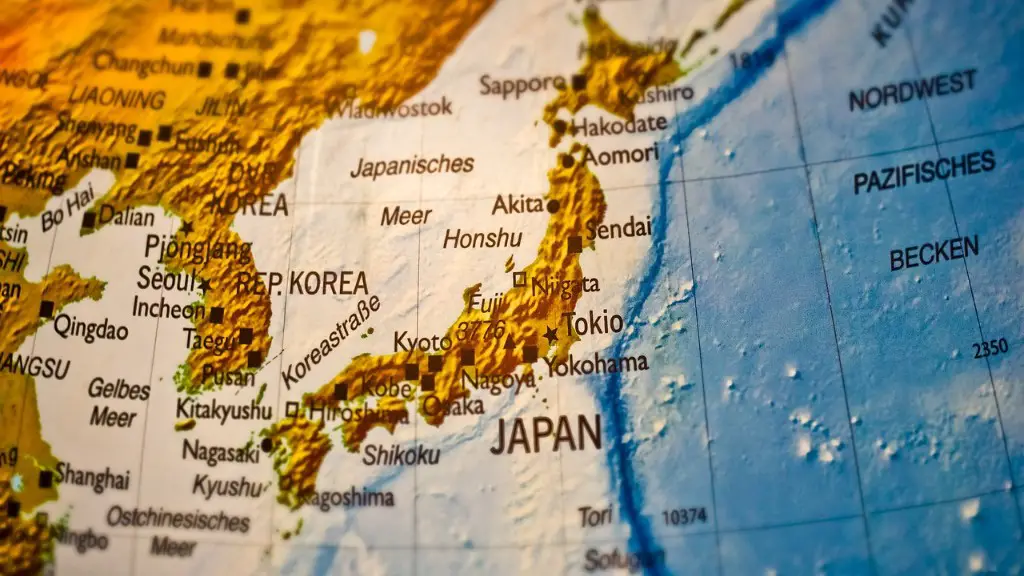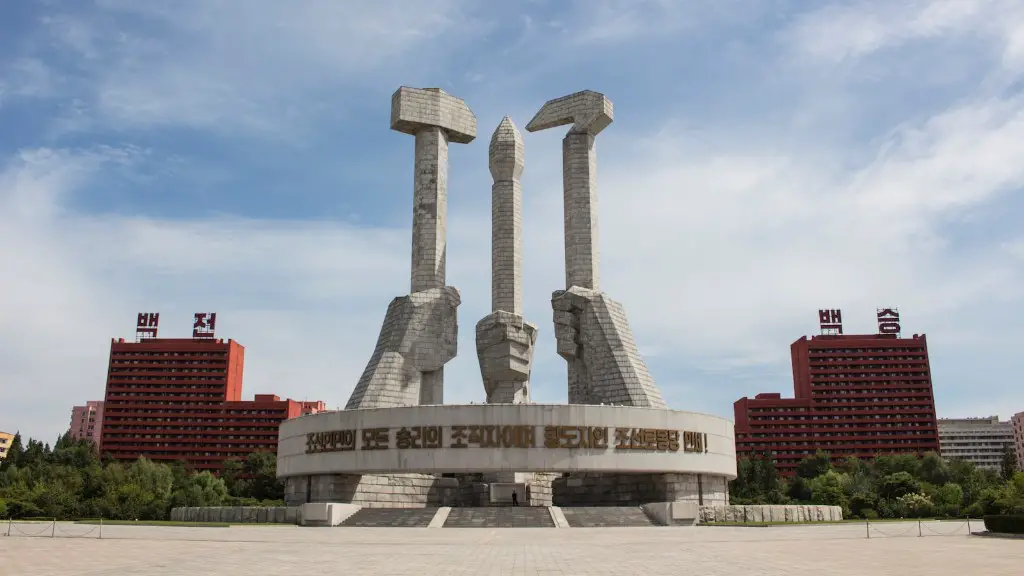Historical Context of Separation
The separation of North and South Korea happened following the end of World War II in 1945. Before this, the two regions had been part of the same country, the Empire of Japan, for more than 35 years. When Japan surrendered to the Allied Powers, United States and the Soviet Union, in August 1945, the two nations were hastily divided into two separate governments. In the North, the Soviets installed a communist regime, led by Kim Il-Sung, and in the South, the U.S. installed a coalition provisional government. This quickly sparked a conflict between the two regimes as each claimed full control of the entire Korean peninsula, making negotiations difficult. After efforts to broker peace failed, the Korean War began in 1950.
More than two million people lost their lives in the conflict between the two armies, and although a ceasefire was eventually reached in 1953, the two countries remained separated and tensions between them still exist to this day.
Origins of the Conflict
Since its inception, the split between North and South Korea has been a source of tension and conflict. Since 1945, the two governments have clashed on numerous occasions, with each claiming full sovereignty over the other’s territory. In addition, North Korea has sought to spread its own ideology and way of life to the South, while South Korea has continually strived to keep its autonomy.
The question of why North and South Korea split has been a matter of debate for decades. It is widely believed that the main reason for the continued hostility and separation between the two countries is the dissimilar ideologies of the two governments. North Korea is a heavily militarized, juche state, deeply rooted in socialism, while South Korea is a democratic, capitalist society. This ideological divide has played a major role in exacerbating their differences.
Recent Developments
In recent years, there has been a slight thaw in the relations between North and South Korea. In 2018, leaders from both countries met in a historic summit to try to bring an end to the 65-year old conflict. This meeting was the first of its kind in over a decade, and led to a series of important diplomatic developments. The two nations agreed to work together to reduce tension, to cooperate in the development of the Korean Peninsula, and to hold reunions of divided families.
In addition, inter-Korean trade has slowly begun to increase, although most of the trade is still conducted through third parties due to economic sanctions placed on the North by the international community. There have been some struggles, with the North test-firing missiles and conducting nuclear tests, and the South responding with sanctions. Despite these issues, the inter-Korean dialog has been mostly positive and both leaders have committed to further talks.
The Impact on North and South Korea
The impact of the North and South Korea split has been immense on both countries. North Korea has been isolated from the rest of the world for the past decades, leading to a deep mistrust between them and the outside world. This has led to a flattening of the country’s economy, a lack of access to modern technology, and a heavy dependence on international aid for survival. In addition, the North’s nuclear weapons program has been condemned by the international community and has arguably further deepened their isolation from the rest of the world.
The South, on the other hand, has been able to modernize and prosper. South Korean economic growth has been one of the highest in the world, and its society is among the most open and advanced in Asia. The tensions between the two countries have also weighed heavily on South Korea, with the regular threat of war and the constant need for defence spending.
Future Prospects of Reunification
The reunification of North and South Korea is a goal that many have sought for decades. Proponents of unification argue that it could bring economic growth and stability to the entire peninsula, and could even potentially lead to the disarmament of North Korea’s nuclear weapons program. However, experts caution that reunification would be a difficult and potentially lengthy process, and there are many logistical, political, and economic hurdles that need to be overcome.
Many believe that the most effective way to reunite the two nations is through diplomatic efforts and increased inter-Korean engagement. This could potentially reduce the tensions between the two sides and serve as a first step towards reunification. Reunification would certainly be a difficult and complex process, but it is a goal that many are striving towards.
Economic Implications of Reunification
The economic implications of Korean reunification could be significant. The reunification of the two countries would effectively eliminate tariffs and tariffs-related costs, and create the opportunity for increased investments and foreign direct investments in the Korean economy.
The economic disparities between the two countries would also be addressed, as economic growth and development in the North could lead to increased employment and wages. In addition, the unification of the two Koreas would allow for a more efficient distribution of resources, increased access to capital, and create conditions for sustainable economic growth. It would also enable both countries to benefit from the economies of scale, and could potentially lead to the creation of new jobs in both countries.
Cultural Implications of Reunification
The reunification of North and South Korea could also lead to significant cultural changes on the Korean peninsula. A unified Korea could create a more harmonious and cohesive society, and could even lead to the development of a new national identity. This could lead to increased understanding and appreciation for the cultures and beliefs of both parts of the country.
The reunification of the two Koreas could also have major implications for sport. A unified Korea could create the opportunity for increased collaboration and participation in international sporting events, and could even lead to the emergence of a unified team competing in events such as the Olympics. This could serve as a symbol of unity and peace for the entire Korean peninsula.
Political Implications of Reunification
Not only would reunification of North and South Korea have economic and cultural implications, but it could also lead to major political changes. A unified Korea could potentially eliminate the need for the current divided government of North and South, as well as create the opportunity to create a more democratic, transparent, and accountable government.
In addition, reunification could lead to enhanced cooperation between the two Koreas on global issues, such as disarmament and international security. This could create the opportunity for increased peace and stability in the region, and ultimately create a more secure and prosperous Korean peninsula.
Social Implications of Reunification
The reunification of North and South Korea could also have social implications. It could lead to an increased understanding of each other’s culture and beliefs, as well as create the potential for more cultural exchange and collaboration between the two countries. This could lead to a stronger sense of shared identity and community on the Korean peninsula, and even create the opportunity for increased cooperation on social issues, such as education and healthcare.
Furthermore, the reunification of the two Koreas could potentially lead to more social mobility and equality in both countries, as the North’s citizens would benefit from access to South Korea’s more advanced education and healthcare systems. Ultimately, the reunification of North and South Korea could have major implications for the entire region, and could even potentially become a beacon of hope, peace, and prosperity in an increasingly turbulent world.




